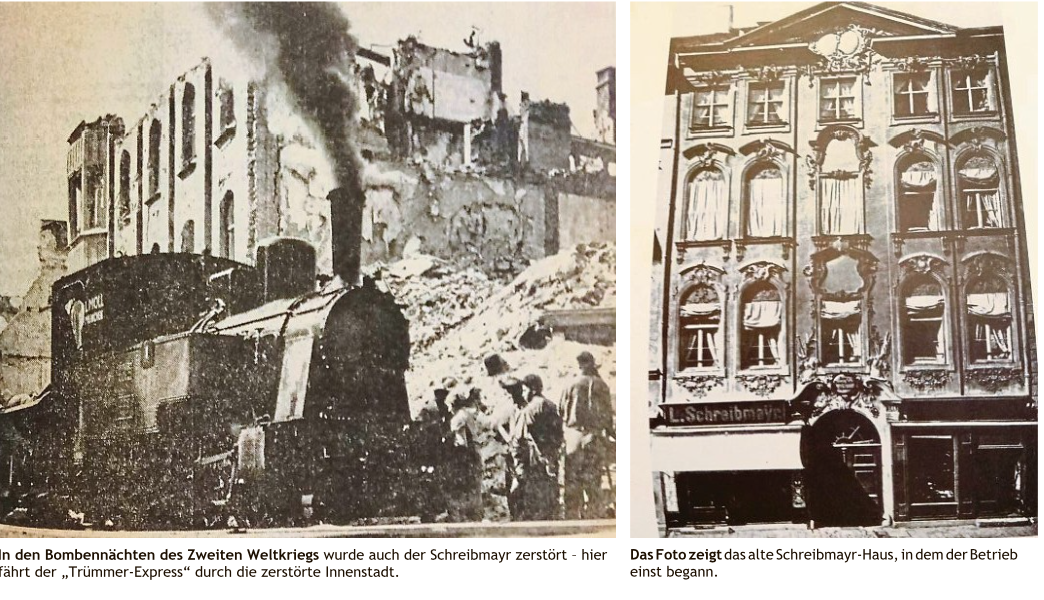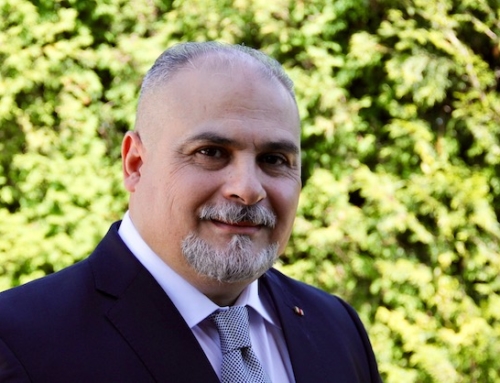The traditional Schreibmayr business closes – its history shows how crises affect companies.
Since 1826, the name Schreibmayr has stood for writing culture in Munich. After almost 200 years of company history, the end of the month is the end for the traditional business – Corona and the caprices of the Munich rental market have sealed the end. In 1826, the gallantry and lining worker Johann Nepomuk Schreibmayr founded the company – since then, big and small crises have been part of the company’s history.
“It is with melancholy that I read in my newspaper about the end of the ‘Schreibmayr’ , at the same time my thoughts fly back into the past of my family history, which was closely connected with the history of the ‘Schreibmayr’ for 68 years,” says Dr. Beatrice Bischof, whose grandfather rebuilt the traditional business after the Second World War and gave it its face of modern times. “The Schreibmayr was my grandfather’s favorite,” Bischof recalls.
He came to the Schreibmayr in 1928 – also a time of crisis. The Schreibmayr was a victim of inflation and economic conditions in the 1920s. Beatrice Bischof’s grandfather, Franz Bischof, and his brother-in-law Wilhelm Treuleben had founded the TeBe calendar and leather goods factory in the backyards of Munich’s breweries on Kirchenstraße after the First World War. The acquisition of Schreibmayr in 1928 was an opportunity for the factory owners to expand the company’s association; direct customer contact was to help in the design of new collections.
This was followed by the world economic crisis, the seizure of power by the National Socialists and ultimately the destruction of the store in Theatinerstrasse on the night of the bombing from April 23 to 24, 1944. “Immediately after the attack, my grandfather still tried to save what could be saved,” Bischof recalls. As a precaution, the entrepreneur had set up alternative storage facilities in Dachau, at Tegernsee and in the basement of the TeBe factory – and he rented a small store at Residenzstraße 16.
In July, Schreibmayr moved into his new sales premises at Theatinerstrasse 9, in the house of the Hypo Bank. “My grandfather didn’t see Residenzstrasse as his sales area,” Bischof says. This closed a circle: “Schreibmayr was now back in the same place where the founder’s son, Magistrate Ludwig Schreibmayr, had opened the first store,” Bischof says.
The move shortly after the currency reform was a gamble that paid off. “My grandfather had his life’s work back,” Bischof recalls. And with the arrival of junior Beatrice Bischof’s father Fritz Bischof and his cousin, Schreibmayr was expanded in 1953, and an efficient print shop was built up. In 1961, Fritz Bischof expanded the business again; in the economic miracle, Schreibmayr became the world’s largest buyer of Montblanc fountain pens.
The coming decades nevertheless showed how much the economy was subject to constant change: Specialty retailers were confronted with the “problem department store” – just as department stores groan under online retailing today. Automation and computerization drove up costs, as did rising rents in Munich. When the Hypo complex was rebuilt in 1996, the issue of location security was added, and the decision to sell Schreibmayr to Kaut-Bullinger-Holding matured – “while preserving the jobs and the good company name,” Bischof says.
Now the successors are throwing in the towel in the Corona crisis. At least they are getting by without layoffs – the employees will all be housed at the Kaut-Bullinger headquarters.
MARC KNIEPKAMP
Münchner Merkur No. 11 | Friday, January 15, 2021





